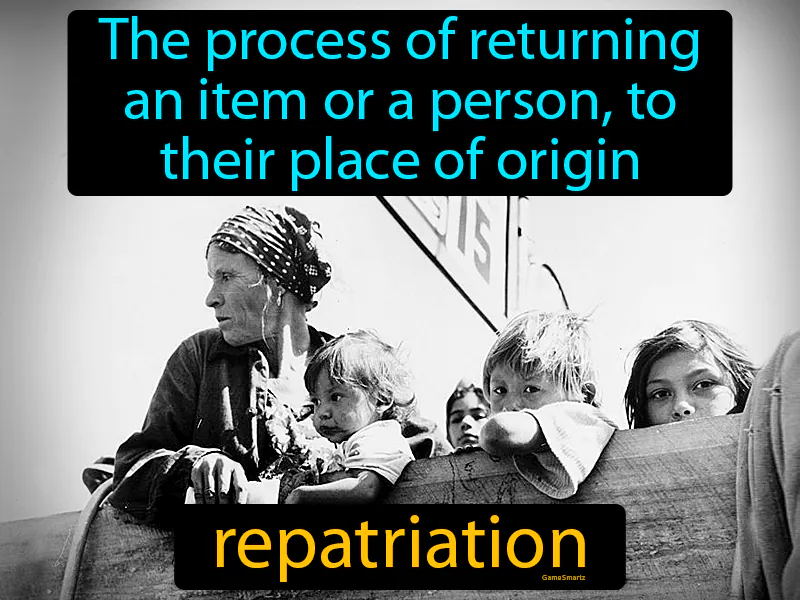Repatriation
Repatriation: Easy to understand
During the Great Depression from 1928-1933, repatriation referred to the return of people, especially Mexican immigrants, to their home countries due to widespread unemployment and economic hardship in the United States. Because jobs were scarce, some people believed sending immigrants back would relieve job competition and reduce the burden on public resources. This policy affected many families, often forcing them to leave everything behind despite having lived in the U.S. for years. Today, repatriation continues to be relevant in discussions about immigration policies and economic conditions, impacting how communities handle workers from abroad during tough times. For example, during economic downturns, debates may arise about whether to prioritize local workers over immigrants, affecting families and communities who have settled in a new country.

Practice Version

Repatriation: The process of returning an item or a person, to their place of origin. Repatriation. In history, repatriation refers to the return of people, such as prisoners of war or refugees, to their home country.